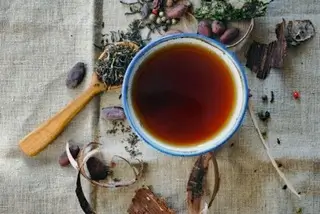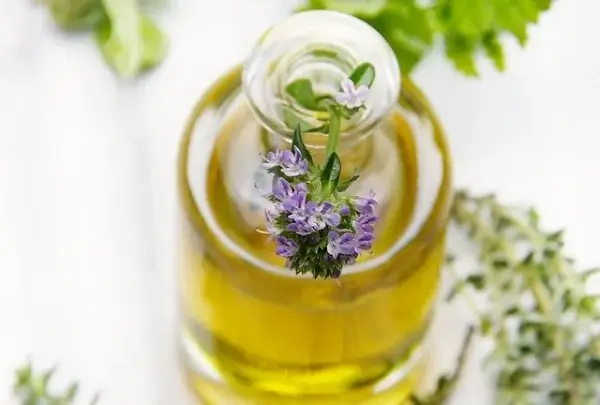
If we were to ask you, what springs to your mind when you think “cold/flu”, what would be on your list? Tissues, nasal spray, good rest, paracetamol, thermometer, lozenges, chicken soup? Would cold and flu tea be there? Doctors have found, that more and more of us are reaching for tea and herbal medicine when sick. So let’s talk the best cold and flu teas and see why they are becoming the talk of the town.
History of herbal tea
Predictably, the first-ever herbal green tea, and tea as such, was drunk by the Chinese emperor Shennong in 2737BC. Coincidentally, Shennong is considered to be the father of Chinese medicine and the first person to discover the benefits of boiled water. He was believed to be resting underneath a tree while the emperor’s servant was boiling water to drink. All of a sudden a few leaves from the tree floated down and right into the boiling water. The leaves changed the colour of the water and Shennong made an astonishing discovery: herbs can infuse the water. And so tea was born.
Well into the 6th century AD, tea was considered a medicinal drink. It wasn’t until later, during the T’ang dynasty, that tea drinking has become popular and variations of tea appeared: from green to black. Tea has become a common drink while herbal additives such as ginger, onion, peppermint, and orange were also discovered and acknowledged to help relieve symptoms of many sicknesses.
Good cold and flu teas – how-to’s
Flue and cold teas are made from different herbs and thus have different effects. Depending on your symptoms, a specific tea blend may work better than others. There are a few things to keep in mind – loose teas are best. They can be composed individually to address particular symptoms or sicknesses. The brewing time and temperature of tea are also critical. 1000C is a safe bet for most herbal teas while brewing time is a matter of taste. As a general rule, the more crumbled tea leaves are, the hotter the water, and the shorter the brewing time. If you keep the leaves in the water for too long, they are likely to release natural tannins and your tea may have an unpleasant bitter aftertaste.
Too many to choose from?
Depending on the herbs used, cold and flu teas can help relieve one or the other symptom. Here are the most common ones:
Green thyme tea is a champion in clearing up coughs and bronchial diseases. It helps relax airways and loosen mucus, it also has a good antispasmodic effect.
Chamomile tea has outstanding anti-inflammatory and antispasmodic properties. Chamomile may help fight flu and accompanying infections, and calm sore throat and abdominal pain.
Peppermint tea soothes a sore throat, clears airways, and fends off germs. Be cautious though if you have a sensitive stomach or IBS.
Sage tea is particularly effective against cough and other respiratory diseases. It loosens mucus and has an antibacterial effect. Sage is also known to bring relief from gingivitis and infected tonsils.
Linden flowers are believed to induce sweating and reduce fever.
To speed up the recovery from flu and cold and boost your immune system, brew some fennel tea. It is also widely used to relieve asthma symptoms however make sure you consult your doctor first.
Our choice
Here, at Just Swiss Australia, we are big advocates for herbal treatments and teas. We have tried and loved a few good cold and flu teas that have over the years helped clear up some snotty noses and nasty coughs.
Ginger tea: our go-to tea during flu season. The tea has a positive effect on the immune system and helps eliminate most cold and flu systems faster.
Method: wash a medium ginger root, cut off a 3 – 5 cm piece and cut it into thin slices. Then either boil the slices in 250 ml of water or let them sit in a cup with 250 ml of boiling water for 10 minutes. If you like your tea sweeter, add some honey. Tip: never add honey to boiling water. It will lose its medicinal properties.
Elderflower tea: your sinuses’ best friend
Method: Pour 250 ml of boiling water over 2 teaspoons of dried flowers and keep covered for 8-10 minutes.
Lemon tea: bursting with vitamin C
Method: Squeeze a whole lemon, including the pulp, and mix with lukewarm water. You may wish to add honey, too, to sweeten the drink. Tip: avoid adding citrus juices into hot water and consume them immediately. Vitamin C is light and heat sensitive.
And remember to always listen to your body and get plenty of bed rest and fluids.
Note: None of the above constitutes medical advice. You should always consult a health professional, particularly if your symptoms persist or get worse.




